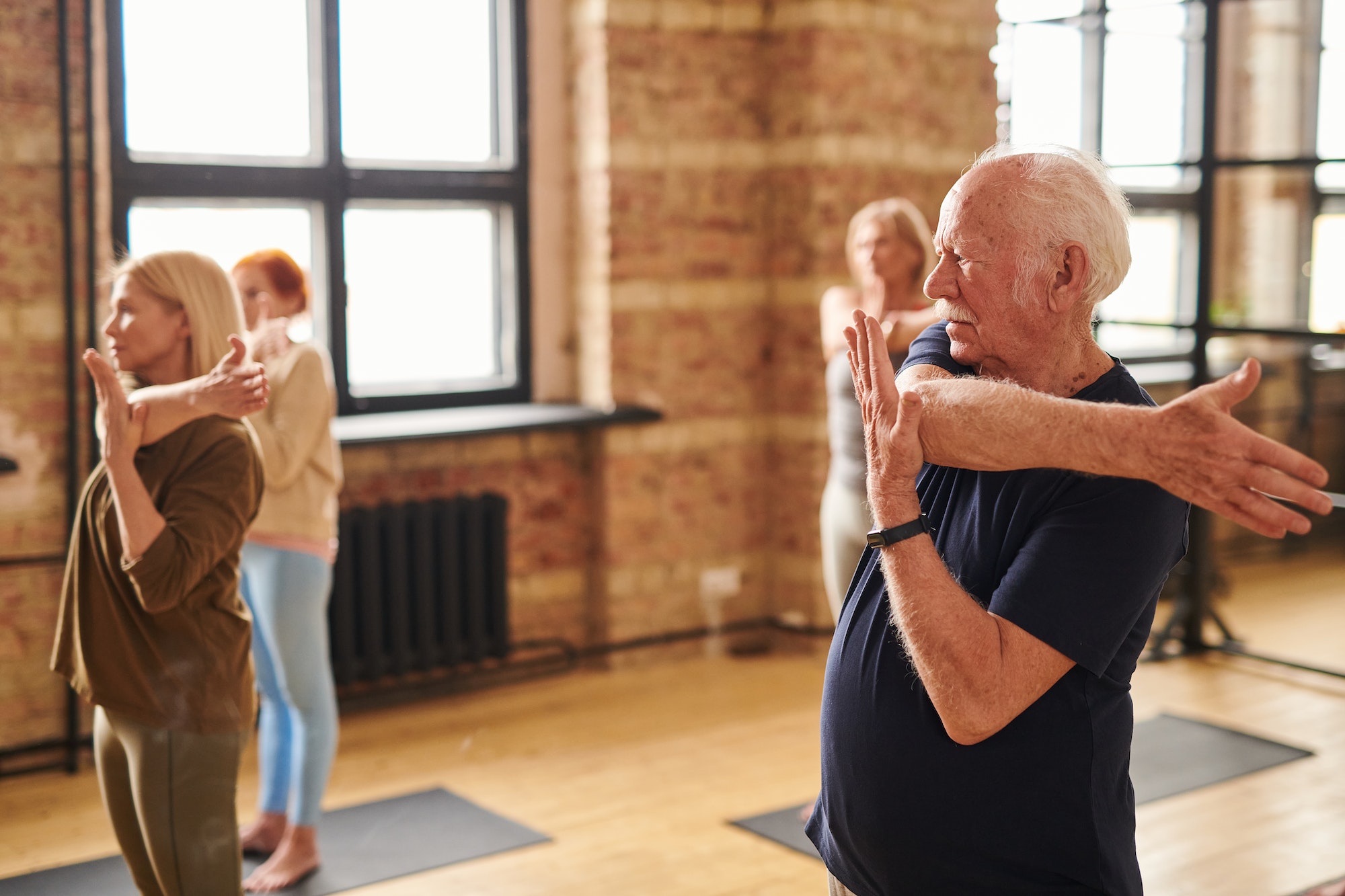Sweating out the golden years? Absolutely! Best exercise routines for seniors are a vibrant topic of interest in today’s health-conscious era. From morning walks to advanced yoga, seniors are redefining what it means to be active post-retirement. Now, you might be thinking, “Isn’t retirement all about chilling with a cup of tea, reminiscing over cherished retirement wishes?” Sure, but why not do that while maintaining a healthy body and mind?
Contents
- 1 Taking The Plunge: Pool Exercises
- 2 Sit and Get Fit: Chair Exercises
- 3 Strengthening The Spine: Back Exercises
- 4 Knee-deep In Fitness: Knee Exercises
- 5 Foods & Fitness: A Match Made in Heaven
- 6 Sleep and Recovery: The Unsung Heroes
- 7 Understanding The Risks
- 8 Regular Health Check-ups: Your Fitness Compass
- 9 The Mental Side of Fitness
- 10 Dealing with Resistance
- 11 Final Thoughts
Taking The Plunge: Pool Exercises
Imagine floating effortlessly, the water caressing your body while you engage your muscles. Pool exercises for seniors are a blessing! Low impact, high results. And guess what? You can challenge yourself as much or as little as you like.
Sit and Get Fit: Chair Exercises
Who said you need to stand up to get fit? With chair exercises for seniors, you can get a full-body workout without even leaving your seat. Great for days when you feel like keeping it low-key but effective!
Strengthening The Spine: Back Exercises
The backbone of your existence, literally! Back strengthening exercises for seniors ensure you maintain that erect posture and prevent those niggling aches. Trust me; your back will thank you!
Knee-deep In Fitness: Knee Exercises
Did you know that the knee is one of the largest and most used joints in our body? Knee exercises for seniors can keep them robust and pain-free. It’s time to give those knees the attention they deserve!
Foods & Fitness: A Match Made in Heaven
You are what you eat, right? Consuming foods that fight dementia not only boosts brain health but also complements your exercise routine. Think of it as premium fuel for your senior engine.
Sleep and Recovery: The Unsung Heroes
Exercise is fantastic, but what about recovery? Good sleep is invaluable, and for those nights when counting sheep just won’t cut it, elderly sleep aids can come to the rescue.
Understanding The Risks
Ever pondered why is a hip fracture so dangerous for seniors? While exercising is essential, it’s equally crucial to know the risks and work towards preventing them.
Regular Health Check-ups: Your Fitness Compass
Navigating the fitness seas without a compass? Regular full panel blood tests are your guide, ensuring you’re on the right path.
The Mental Side of Fitness
Did you ever stop to think that perhaps the strongest muscle to train is the brain? Engaging in activities that stimulate the mind complements physical exercise routines perfectly.
Dealing with Resistance
Sometimes the biggest challenge isn’t starting an exercise but dealing with resistance, especially from loved ones. If you’re wondering how to deal with stubborn parents resistant to exercise, gentle encouragement and leading by example can be game-changers.
Final Thoughts
In the end, it’s evident that the best exercise routines for seniors encompass a holistic approach. It’s about finding the perfect balance of mind, body, and soul, ensuring that the golden years truly shine.
FAQs:
- Are exercises safe for seniors with chronic conditions?
- Yes, but it’s essential to consult a doctor and choose exercises tailored to individual needs.
- How often should seniors exercise?
- Ideally, some form of exercise daily is beneficial, but frequency can vary based on individual health and preferences.
- Can diet complement my exercise routine?
- Absolutely! A balanced diet can boost energy, aid recovery, and enhance the benefits of exercise.
- What’s the best time of day for seniors to exercise?
- It varies for everyone. Some prefer mornings, while others might find evenings more convenient. Listen to your body!
- Is it too late to start exercising in my 70s or 80s?
- It’s never too late! However, always start slow, consult with healthcare professionals, and focus on low-impact exercises initially.







































